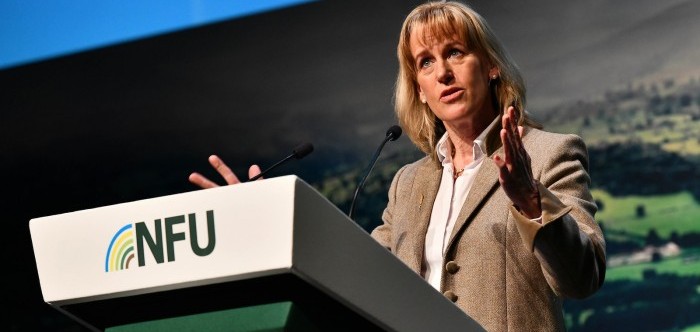Farming organisations from across the UK have urged the Government to stand up for farmers as UK trade negotiations with Australia and New Zealand reach an advanced stage.
Following a meeting, involving 19 farming bodies across a range of sectors and from all four nations of the UK, including the NFU and NPA, the UK Farming Roundtable agreed five principles that are of crucial importance to UK food and farming in the negotiations:
- Upholding our high standards of production and positioning the UK as a global leader in sustainable farming and in tackling climate change
- Recognising the specific sensitivities of some UK farming sectors, such as beef and sheep, in the current negotiations
- Balancing improved access and lower tariffs for agricultural imports with quotas and other safeguards to avoid irreversible damage to UK farming
- Ensuring any trade deal is genuinely reciprocal and that the benefits properly reflect how valuable UK market access is for foreign exporters
- Acknowledging that these deals will establish precedents that will be reflected in all our trade deals
The statement from the Roundtable comes amid reports that the British government is locked in a ‘ferocious’ internal battle over whether to sign off a trade deal with Australia due to tensions between Defra and the Department for International Trade over the extent of tariff liberalisation.
The Financial Times quotes UK officials claiming Australian and New Zealand negotiators were holding firm on demands for full tariff liberalisation, which International Trade Secretary Liz Truss is under pressure to grant in order by G7 June summit in Cornwall, possibly phased in over a 10-year period.
NFU president Minette Batters said that the Government’s repeated commitments to safeguard the UK’s own standards and to not undercut farmers through unfair competition are encouraging.
“We know that if we’re to open up the opportunities of new markets overseas for UK farmers, we will have to offer greater access to our own markets in return,” she said.
“However, this trade-off needs to be balanced, and we need to make sure concessions to our hugely valuable home market are not given away lightly. There is a very real risk that, if we get it wrong, UK farming will suffer irreversible damage rather than flourish in the way we all desire, to the detriment of our environment, our food security and our rural communities.”
Ms Batters urged the Government to showcase the UK’s credentials as a global leader in animal welfare standards, environmental protection and taking action to tackle climate change, and to reinforce a domestic environment in which UK farmers are empowered to rise to these challenges, leading the way in climate friendly, high-welfare farming.
“The British government faces a choice,” she continued. “It must recognise that opening up zero tariff trade on all imports of products such as beef and lamb means British farming, working to its current high standards, will struggle to compete.
“Does Government lower standards here, which it says it won’t and a million people who signed our petition don’t want to see, or will it watch family farms go out of business when they are unable to compete?
“At a time when government has placed huge importance on its aim of levelling up, this would fundamentally undermine any ambition to narrow the rural-urban divide or to ensure all parts of the UK are included in the government’s desire to build back in the months ahead.”
She also said that negotiators should also be mindful of the cumulative impact of our free trade agreements, which the government has said will be concluded in a matter of weeks:
“They will be the first in a series of deals that will undoubtedly increase market access into the UK. The government must assess how the impact of these concessions combined across multiple trading partners will impact on domestic producers and the rural economy.
NPA Chairman, Rob Mutimer, said: “The deals the UK agrees with Australia and New Zealand will set the precedent for our future trading relationships across the globe. It could open the floodgates to major pork exporters like the USA, where producers operate to certain standards that wouldn’t be allowed in this country.
“We absolutely support the Government’s ambition to liberalise trade and expand markets for our world-leading produce overseas. However, trade deals must be fair for both sides and we cannot allow British pig farmers to be undercut by meat produced to lower welfare standards abroad.”
Mark Bridgeman, president of the Country Land and Business Association (CLA) which sits on the Roundtable, said:
“A free trade deal with Australia provides many opportunities for the British agri-food sector. British food is produced to some of the highest environmental and animal welfare standards in the world and there is every reason why our friends in Australia would want to buy British.
“While many British consumers might look forward to cheaper Australian goods too, we owe it to them to ensure any food we import under this – or any other – trade deal meets the same high standards as is expected of UK producers.
“Herein lies the risk. If Government does not back British farmers in these negotiations, then producers run the risk of being undercut by cheaper imports produced to much lower standards. This would be unacceptable.”




